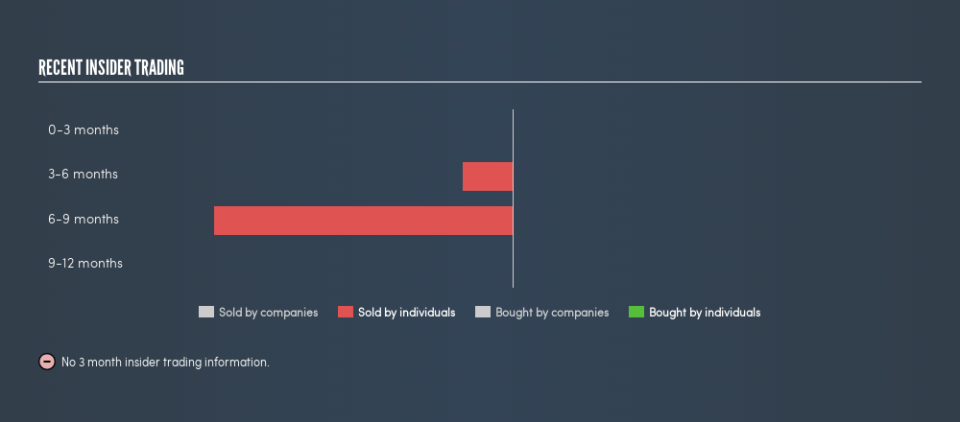Should You Be Worried About Insider Transactions At Southwest Airlines Co. (NYSE:LUV)?

It is not uncommon to see companies perform well in the years after insiders buy shares. The flip side of that is that there are more than a few examples of insiders dumping stock prior to a period of weak performance. So before you buy or sell Southwest Airlines Co. (NYSE:LUV), you may well want to know whether insiders have been buying or selling.
What Is Insider Selling?
It is perfectly legal for company insiders, including board members, to buy and sell stock in a company. However, such insiders must disclose their trading activities, and not trade on inside information.
We would never suggest that investors should base their decisions solely on what the directors of a company have been doing. But logic dictates you should pay some attention to whether insiders are buying or selling shares. For example, a Columbia University study found that ‘insiders are more likely to engage in open market purchases of their own company’s stock when the firm is about to reveal new agreements with customers and suppliers’.
Check out our latest analysis for Southwest Airlines
The Last 12 Months Of Insider Transactions At Southwest Airlines
Over the last year, we can see that the biggest insider sale was by Andrew Watterson for US$363k worth of shares, at about US$59.30 per share. That means that an insider was selling shares at around the current price of US$51.37. They might be selling for a variety of reasons, but it’s hard to argue this is a bullish sign. We usually pause to reflect on the potential that a stock has a high valuation, if insiders have been selling at around the current price.
Over the last year, we note insiders sold 13.41k shares worth US$775k. Over the last year we saw more insider selling of Southwest Airlines shares, than buying. The sellers received a price of around US$57.83, on average. We don’t gain much confidence from insider selling near the recent share price. While some insiders have decided to take some money off the table, we wouldn’t put too much weight on this fact. You can see the insider transactions (by individuals) over the last year depicted in the chart below. By clicking on the graph below, you can see the precise details of each insider transaction!
If you like to buy stocks alongside management, then you might just love this free list of companies. (Hint: insiders have been buying them).
Insider Ownership of Southwest Airlines
Many investors like to check how much of a company is owned by insiders. Usually, the higher the insider ownership, the more likely it is that insiders will be incentivised to build the company for the long term. Southwest Airlines insiders own about US$80m worth of shares. That equates to 0.3% of the company. We’ve certainly seen higher levels of insider ownership elsewhere, but these holdings are enough to suggest alignment between insiders and the other shareholders.
So What Do The Southwest Airlines Insider Transactions Indicate?
The fact that there have been no Southwest Airlines insider transactions recently certainly doesn’t bother us. Our analysis of Southwest Airlines insider transactions leaves us cautious. The modest level of insider ownership is, at least, some comfort. Of course, the future is what matters most. So if you are interested in Southwest Airlines, you should check out this free report on analyst forecasts for the company.
Of course, you might find a fantastic investment by looking elsewhere. So take a peek at this free list of interesting companies.
We aim to bring you long-term focused research analysis driven by fundamental data. Note that our analysis may not factor in the latest price-sensitive company announcements or qualitative material.
If you spot an error that warrants correction, please contact the editor at editorial-team@simplywallst.com. This article by Simply Wall St is general in nature. It does not constitute a recommendation to buy or sell any stock, and does not take account of your objectives, or your financial situation. Simply Wall St has no position in the stocks mentioned. Thank you for reading.



